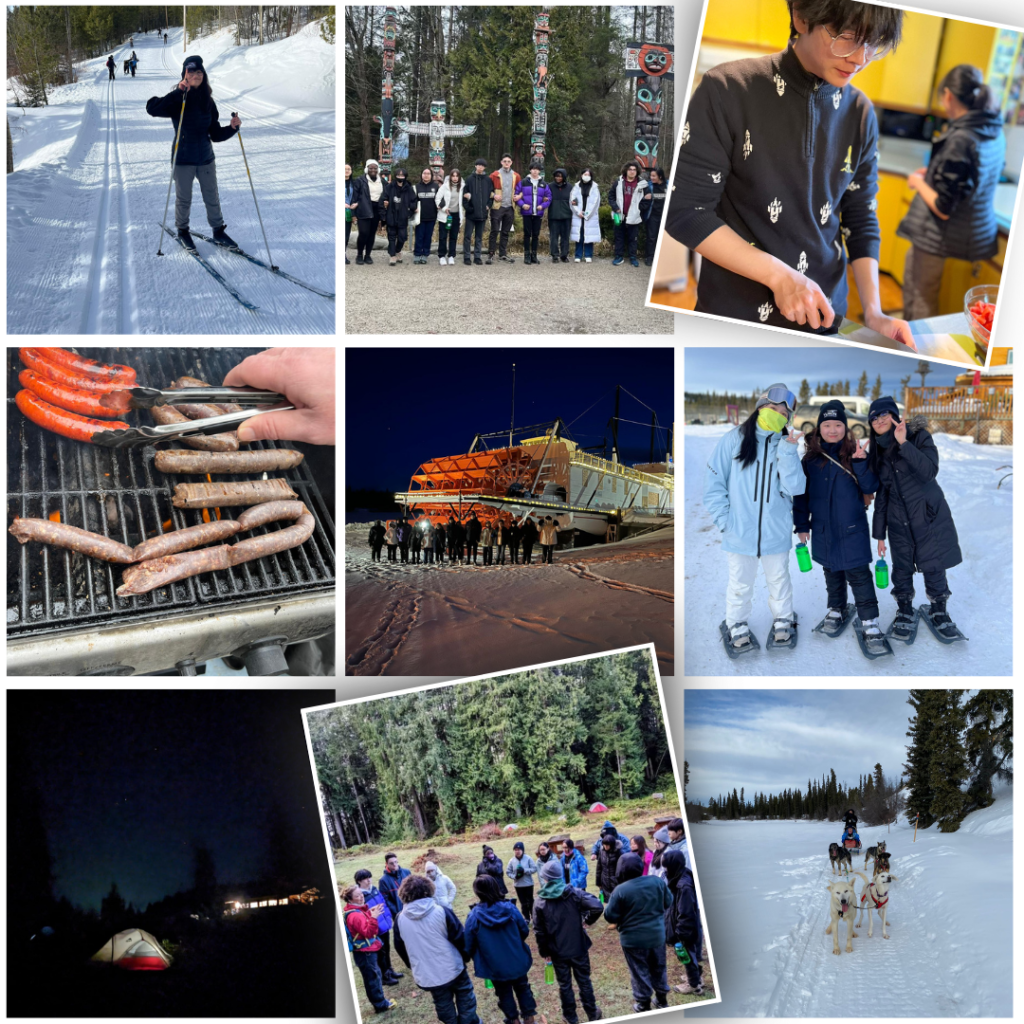 A group of Columbia International College students recently embarked on a breathtaking educational trip to the Yukon Territory, one of Canada’s most remote and pristine regions! The ten-day adventure saw the group fully immersed in the Yukon way of life. They learned about the history and traditions of the Indigenous peoples who have inhabited Yukon for thousands of years, and discovered the deep connection they have with the land and their commitment to environmental sustainability.
A group of Columbia International College students recently embarked on a breathtaking educational trip to the Yukon Territory, one of Canada’s most remote and pristine regions! The ten-day adventure saw the group fully immersed in the Yukon way of life. They learned about the history and traditions of the Indigenous peoples who have inhabited Yukon for thousands of years, and discovered the deep connection they have with the land and their commitment to environmental sustainability.
Saturday, March 11
Excitement filled the air as the group took off from Toronto, embarking on a thrilling journey to Vancouver. They were introduced to the concept of traditional Indigenous territories on “settled” land and learned about the history and culture of the Indigenous peoples of the region. Their spirits were high, and their hearts were filled with anticipation for the exhilarating experiences that awaited them on this incredible journey.
Sunday, March 12
The group boarded a ferry to Galiano Island, where they were greeted by the breathtaking Millard Learning Centre. In a beautiful traditional ceremony, they walked through the forest barefoot, forging a deep connection with the land. The beach was alive with fascinating wildlife, which the students eagerly explored. As the sun began to set, they set up camp, built a roaring fire, and cooked up a storm, bonding over their delicious meal.
Monday, March 13
The students worked with the Galiano Conservation Association to restore local farmland back to its natural condition: a wetland. They repotted native plants and learned which were used by Indigenous people to create herbal remedies for common illnesses. They also set up cages around juvenile aspen trees to protect them from deer, as these trees are the first-growth trees needed to restore the wetland, before the famous Red Cedar trees are planted. Students also explored tidal animal habitats along the Montague Harbour Provincial Park and brainstormed sustainable practices that could minimize human impact on the local environment in Hamilton.
Tuesday, March 14
The students trekked from sea level to the summit of Mt. Galiano (314 m) for an epic vista of BC’s Southern Gulf Islands that took their breath away.
Wednesday, March 15
The group arrived in Whitehorse, where they kicked off their adventure with an exhilarating and interactive trivia game to get acquainted with the intriguing details of the Yukon Territory and its captivating history.
Thursday, March 16
The group wasted no time on their first day in Whitehorse, hitting the slopes of Mount Sima for some thrilling downhill skiing and a glimpse of the Yukon’s vibrant recreational scene. As the sun set, they explored the historic SS. Klondike, a 100-year-old steam-powered paddleboat, and delved into Whitehorse’s rich past as a pivotal stop along the 1898 Klondike Gold Rush route to Dawson City.
On Friday, March 17
The group dove deep into Whitehorse’s history, exploring the Information Centre and the McBride Museum of Yukon History. They uncovered the fascinating dynamic between Indigenous peoples and the settlers who flocked to the region during the Gold Rush. At Lumel Studios, they got hands-on with glass blowing, creating their very own unique pieces to keep as cherished mementos.
Saturday, March 18
It was another thrilling day for the students, as they went to Muktuk Adventures and honed their survival skills and snowshoeing prowess. They got a taste of authentic Yukon travel by hitting the trails with a team of spirited sled dogs, mushing their way through the snow for an unforgettable adventure.
Sunday, March 19
The students spent an action-packed day at the Whitehorse Cross Country Ski Club, gliding along over 100 km of Olympic-level ski-trails and perfecting their technique. They then unwound at the Canada Games Centre’s sauna and pool before coming together at Beez Kneez hostel to cook up a storm and delve into the significance of tourism in the region.
Monday, March 20
The students ventured to Little Atlin Lodge and were greeted by the warm hospitality of Frida and Sheldon, who shared their knowledge of traditional Indigenous beading and ice fishing. They delved into the pressing issue of climate change and collaborated to devise innovative solutions for individuals and small businesses to combat it.








































